Saturday Feb 28, 2026
Saturday Feb 28, 2026
Wednesday, 29 April 2020 02:20 - - {{hitsCtrl.values.hits}}
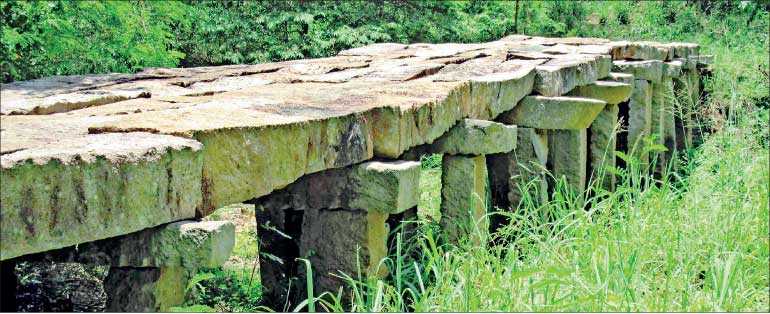
Mahakanadarawa ancient stone bridge
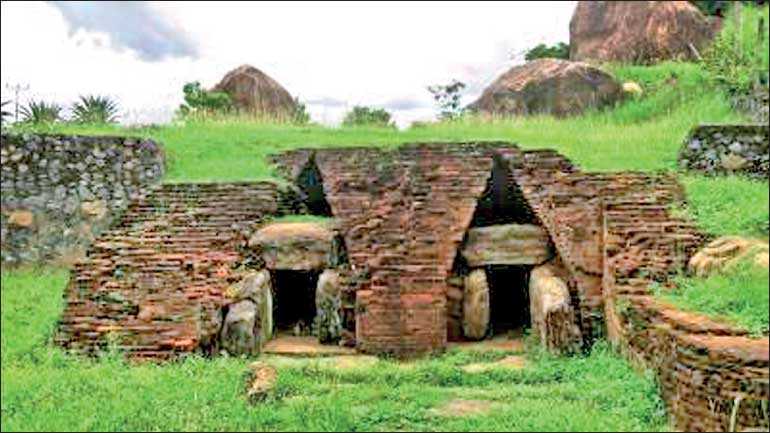
Ancient irrigation marvels found in Maduru Oya
 This is one of the best times for Sri Lanka to realise, rethink and reset to its default status, if seriously interested.
This is one of the best times for Sri Lanka to realise, rethink and reset to its default status, if seriously interested.
Agriculture using greenhouse technology, Agri-based industries with state-of-the-art technologies and export of such products including herbs and herbal products should be the main economic driver for Sri Lanka in the next 30 years.
Reset to default status
The vulnerability of trying to push the Tourism industry as the key economic driver was taught twice within a short span of just 11 months. Further, this industry underwent severe hardships for almost 28 years during the civil war too.
Tourism for Sri Lanka is a natural attraction considering its diversity unlike the Maldives. Sri Lanka need not compete with other countries in this region either. It is just a matter of strategic thinking outside the box and planning to host a series of high-profile events annually with proper infrastructure to facilitate the same. The rest will flow as usual like magic, because this island is naturally magnetic.
My guesses and solutions for an early recovery of passenger airlines or cruise operations are as follows:
A. People will have to be ready to take the risk
B. Governments will have to be 100% sure of their health screening, disinfectant systems and infection controls at boarder entry points. These requirements would demand similar or more than the security screening that is currently in operation at all the airports and seaports globally 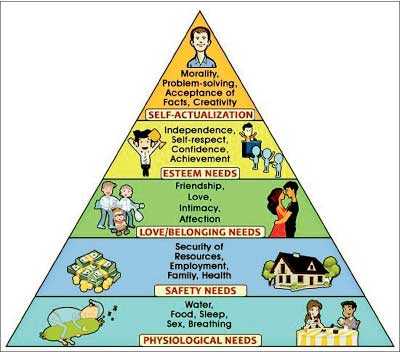
C. Interior of flights and ships will have to be rearranged, spaced out and toilets would need to have automatic disinfectant systems installed
D. Disinfecting of the interior and all other non-disposable, recycling items such as the cutlery, headsets, blankets, pillows and simple things like the menu cards and inflight magazines etc., would need to undergo some standardised infection control and preventative processes
E. Travel insurance cover with medical might become mandatory
F. Wearing masks by the crew and travellers will have to be the norm
G. Cost of Jet A aero fuel and VLSF for ships must be fixed for a long term with OPEC
Above all, ICAO, IATA, IMO and CLIA should engage with WHO immediately to introduce acceptable systems for early detection of infected travellers, contact traced travellers and for standardisation of quarantine facilities globally.
Most parts of the above said control systems and good practices would have to flow down through the entire cycle of hospitality value chain, if the travelling is to be made safe again and the industry to be a success in the immediate future, until a vaccine is found as a cure.
Considering what is going on and has happened in the past, it is obvious enough to understand the volatility and sensitivity of the Tourism industry to the acts of God and human alike. The current situation has made even a sneeze or a cough to be seen as life-threatening, and anyone of those being released accidently at a critical point might even delay or cancel a flight or a cruise in future.
Thereby, why should an island like Sri Lanka have Tourism as its main engine of economic growth? Isn’t it obvious that the default status is the best option and historically Agriculture has been its domain?
The lesson from COVID-19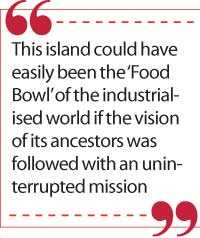
It is imperative to understand that we have a very unique DNA and it can only be harnessed though our own initiatives and beliefs. It was just last year the Civil Aviation Authority of Sri Lanka gave a start to explore the lost heritage of Aviation dominance during King Ravana’s era. It is the first time a State institution came forward to support a research on King Ravana’s era.
Until recently, I did not realise that the only country in the world which has two rainy seasons is Sri Lanka. Then, I was amazed to hear the knowledge and wisdom exhibited by our ancient kings, starting from King Ravana’s grandfather, who began creating man-made lakes and irrigation systems.
Coincidentally, I remember writing a research article in 2002 (i.e. 18 years ago), whilst attached to the Cricket Board on ‘High wastage of perishables produced in this country and that must be prevented’. I did that research and wrote it out of passion and love for this country, before leaving to England with my family for work purposes. My article appeared in two newspapers and the following paragraphs are a summary of the same.
“The cost of living and price hikes are on everyone’s minds these days, and one aspect of this problem that has not received proper attention is the fact that a staggering Forty to Sixty percent (40-60%) of perishable produce such as fruits and vegetables are destroyed before they get to the consumer, due to poor methods of handling.
“Occasionally when we travel outstation, we come across trucks/lorries and other vehicles, which transport perishables from agricultural areas to other parts of the country to market them. It is interesting to note that usually two to three men sleeping on top of these gunny bags loaded with perishables without even being conscious of the fact that every single item inside those has a value and it takes immense amount of man hours, research, fertiliser and soil life etc., to produce a marketable product which ultimately adds to the Cost of Living (COL) of our society.
“Apart from the above, one must not forget that those are being transported on roads which are not in the best conditions for such activity too.
“Considering the above factors, there are a few improvements that can be introduced to remove these identified weaknesses without any major changes to the current practices, thereby saving our produce, safeguarding our resources, encourage agri-based industries and reducing cost.
“The handling labourers to be trained and an incentive scheme to be introduced apart from setting a minimum wage limit, which will then motivate them and give them a sense of commitment to the job.
“The supporting industries i.e. Packaging, Fertiliser, Cold Rooms and Warehouse facilitators to be encouraged through the provision of Tax and/or Duty concessions for a limited period, until such time the objectives are achieved and the industries become feasible.
“To tap and channel local and foreign funds/grants available for projects which have direct bearing on the population and to reduce its cost of living. Example: USAID, NORAD, World Bank, JICA, KOICA, SWEDCORP, FINFUND, ADB etc.
Indirect benefits: This will create new employment for Graduates/Diploma holders in Agriculture and to the unskilled labour as well as for the semi-skilled labour in support industries. Potential export income. Clean and more hygienic products to the consumers (less health problems). Better consumer/seller relationship. Less garbage in urban areas thus preventing/reducing environment pollution.”
Just as I was losing hope and confidence due to not seeing a positive outcome even after 18 years, this corona pandemic came as a blessing in disguise.
All that I am praying is for our people to stay safe, start focusing on our own strengths and look for the opportunities to get the best outcomes from this threat.
I consider this period as the awakening of Ravana (Ravana’s awadiya) and a new beginning for the people of Sri Lanka.
The lesson from COVID-19 is for us to sit back and think of what do we need to live. It is becoming obvious that all what we need is to live without fear of losing food, water, shelter and clothing. That is just the first and second layers of Maslow’s Hierarchy of Needs (See chart).
Convert the threat to an opportunity (Quarantine Time Calibration) 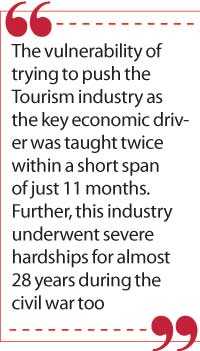
Did you know before that Sri Lanka is the only country in the world having two rainy seasons each year?
This island could have easily been the ‘Food Bowl’ of the industrialised world if the vision of its ancestors was followed with an uninterrupted mission.
Major irrigation schemes of Sri Lanka, as evident from the earliest written records in the Mahawansa, date back to the fourth century BCE (Parker, 1881;[1] Brohier, 1934). The purpose and determination in the construction of the irrigation systems are depicted by the words of Parakrama Bahu I, 1153-1186 CE: “Let not even a drop of rain water go to the sea without benefiting man”.
The Sri Lankan chronicle, the Chulavamsa, which was written in the Buddhist canonical language Pali, enumerates his works both as a provincial ruler in western Sri Lanka and later as the monarch of the whole country: he either built or restored 163 major tanks (reservoirs), 2,617 minor tanks, 3,910 irrigation channels, 328 stone sluices and 168 sluice blocks, besides repairing 1,969 breaches in embankments.
Among the reservoirs he built was the tank at Polonnaruwa, called on account of its size the Parakrama Samudra (translation: Sea of Parakrama). With an area of 30 km2 (12 square miles) and an enclosing embankment 14 km (8.7 miles) long, it irrigated nearly 100 km2 (39 square miles).
The final achievements were highlighted by Sir Henry Ward, Governor of Ceylon:[2] It is possible, that in no other part of the world are there to be found within the same space, the remains of so many works of irrigation, which are, at the same time, of such great antiquity, and of such vast magnitude as Ceylon.
Probably no other country can exhibit works so numerous, and at the same time so ancient and extensive, within the same limited area, as this island.
Historically shown that this island has been patronised by four main clans divided based on their strengths and expertise i.e. Yaksha, Raksha, Deva and Naga. They all have been worshiping the sun for energy and followed a path respecting the land and the environment.
Rakshas’ have been farmers, Yakshas’ have been moulding iron up in the mountains, capable of doing the unimaginable, whilst Nagas’ believed to have been the traders and Devas’ have been the rulers.
Thereby, let’s use this quarantine period to calibrate our own selves and get to the point of ‘Default’ when the world has come to a stop for resetting itself, as a blessing in disguise for Sri Lanka.
The domain of this paradise island is Agriculture including Spices and Herbs. ‘Engineering Agriculture’ means just not cultivation. What I mean by ‘engineering’ is beyond simply cultivating and moving towards R&D using a mixer of both the latest and our native (indigenous) recipes and beliefs (Jana Katha) to produce anything and everything i.e. flour, jams, drinks, syrups, chutney, sauce, pickle, medicines, oils, vitamins, creams, perfumes, toiletries, ointments and organic fertilisers etc., thereby saving millions of forex outflow, creating thousands of job opportunities and a new phase of economic stimulation.
In conclusion, I like to repeat in a deferent manner. The tourists in numbers will return slowly and steadily with the situation becoming conducive to travel again. Strategically, by then local hoteliers and travel industry should be ready to offer more diverse range of locally produced touristic products, services and engagements at economical prices and with greater profits to harness the best of tourism.
These outcomes are easily achievable only if we maximise opportunities out of our default status to fulfil the first and second layers of Maslow’s Hierarchy of Needs. There is no doubt that a certain percentage from the fourth and fifth layers will continue to visit Sri Lanka until such time as this island has so much still to attract like a magnet.
(The writer is a former Chairman of the Ceylon Shipping Corporation, Vice Chairman of the Civil Aviation Authority, a Member of the PRDC and a Board Member of the Ceylon Petroleum Corporation.)